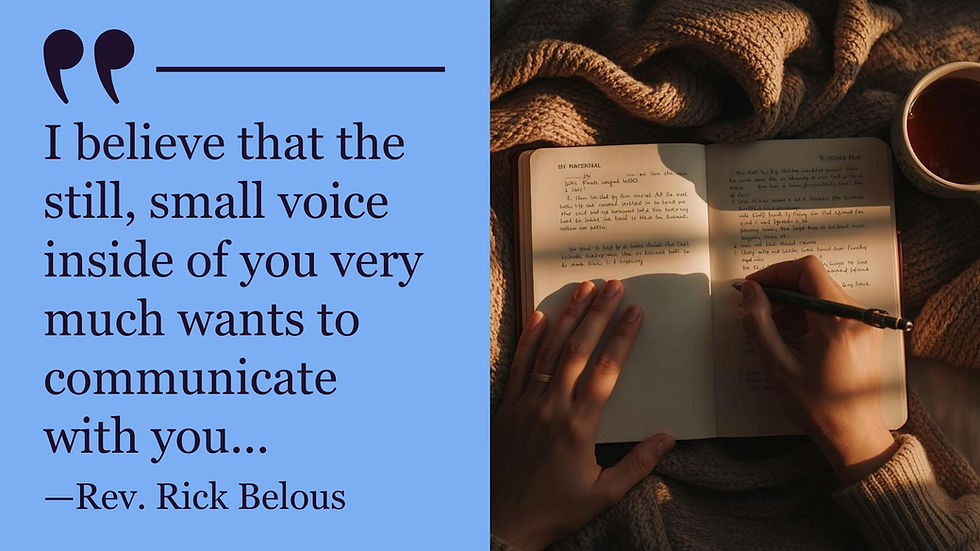Only by Overcoming Polarization Can We Unleash Our Collective Potential
- Rev. James Trapp

- May 27, 2025
- 3 min read

I am writing a book tentatively titled, “They Ain’t Us – How to Heal a Polarized America Through a Revolution of Values.” Today’s post is another excerpt from a draft chapter of the book.
It was a Friday, May 1, 1992, when I received the news. I remember because I was finishing the last of my assignments in the legal department of the corporation where I worked. I was preparing to attend ministerial school to start my previously unplanned and unforeseen journey to become a Unity Minister.
That day, the jury verdict for the police officers charged with the video-recorded barbaric beating of Mr. Rodney King came back not guilty. The community's shocked reaction to the verdict was swift – six days of civil disobedience, including the live broadcast by news helicopters of the brutal assault on a truck driver, Reginald Kenny.
On that first day of May, King made a television appearance pleading for an end to the uprising and said, “I just want to say – you know – can we, can we all get along?”
With all the divisiveness and polarization that have occurred between people and groups throughout America’s history, the essence of those words has resonated in the minds and hearts of individuals who envision a better future for humanity.
If America's polarization continues to deepen unchecked, it will not only pit people against each other but also chain us to the past and rob us of our future.
If we are to unshackle ourselves from those chains, we must confront and dismantle the great lie that polarization and divisiveness protect us.
This belief, whether consciously or unconsciously held, seduces us into thinking that retreating into our camps makes us stronger. Surrounding ourselves only with those who look like us, think like us, vote like us, and worship like us will shield us from the chaos beyond.
It whispers that compromise is weakness, that bridge-building is betrayal, and that seeing humanity in "the other" is naive.
But history reveals the truth: our greatness has always come from coming together, not pulling apart.
The Myth of Safety in Separation
At first glance, tribalism feels safe.
It offers clarity: us good, them bad.
It offers community: we are united, they are excluded.
It offers certainty: our truth, their lies.
But that certainty is brittle.
The more we wall ourselves off from differing perspectives, the more fragile our ideas become. Without challenge, our convictions harden. Without debate, our thinking narrows. Without empathy, our judgments and actions become cruel.
Soon, the enemy is everywhere, not just between political parties but also within our ranks.
Did they waver? Are they soft? Are they not pure enough?
In polarized environments, ideological purges often follow external battles.
Movements eat their own. A friend turns against another in a desperate attempt to maintain the purity of the tribe.
This is not strength.
It is cannibalization.
And it leaves societies hollowed out - devoid of the trust, openness, and cross-pollination that drive innovation and resilience.
The Power of "All of Us"
If tribal thinking is the slow death of collective creativity, unity is its rebirth.
Not unity as conformity. Not the forced sameness of authoritarian regimes.
But unity through shared purpose and mutual respect. Unity through dialogue and deliberation. Unity through the recognition that though we may differ in worldview, we are bound together by possibility.
This unity, what Dr. King called a revolution of values, has transformative power.
It allows us to transcend transactional politics and build moral movements. It expands the "we" to include voices that have been long silenced or sidelined. It replaces suspicion with curiosity, contempt with compassion, and rivalry with partnership.
Only in such fertile soil can creativity flourish.
Peace and Blessings,
James





